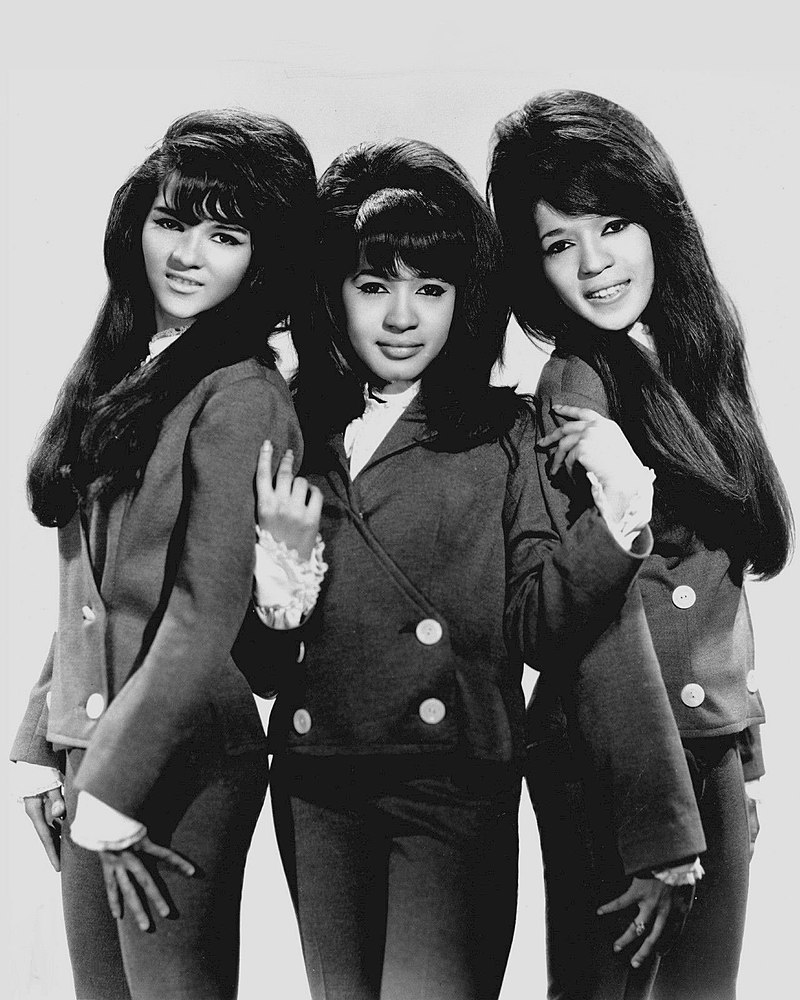Ronnie Spector
Ronnie Spector

Veronica "Ronnie" Spector, born Veronica Yvette Bennett, was raised in East Harlem, New York City, and spent her childhood in the Washington Heights neighborhood of Manhattan. Her parents, Beatrice and Louis Bennett, supported her singing aspirations. Beatrice was of African American and Cherokee descent, while Louis was Irish.
Encouraged by their family, Ronnie and her sister Estelle Bennett, along with their cousin Nedra Talley, formed the Darling Sisters, later known as the Ronettes. Their musical talents were nurtured while they attended George Washington High School in Washington Heights.
Estelle, who worked at Macy's cosmetics counter, helped fashion the group's iconic look. The Ronettes performed at school events and secured a residency at the Peppermint Lounge in Manhattan, a popular venue known for its association with the Twist and go-go dancing.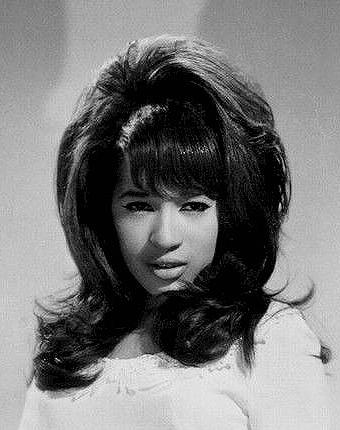
The Ronettes gained popularity as a live act in the early 1960s in the New York area. They initially signed with Colpix Records and worked with producer Stu Phillips in hopes of securing a recording contract. However, their singles released under Colpix Records did not achieve significant success.
In 1963, the group managed to catch the attention of renowned record producer Phil Spector. Spector signed them to his label, Philles Records. Under Spector's guidance, the Ronettes experienced chart success with their biggest hit, "Be My Baby," released in 1963, which reached No. 2 on the Billboard Hot 100.
Following "Be My Baby," the Ronettes released a series of top 40 pop hits, including "Baby, I Love You" (1963), "(The Best Part of) Breakin' Up" (1964), "Do I Love You?" (1964), and "Walking in the Rain" (1964). They also had two entries on the Billboard Hot 100 in 1965 with "Born to Be Together" and "Is This What I Get for Loving You?".
The group's last charting single, "I Can Hear Music," produced by Jeff Barry, reached No. 100 on the Billboard Hot 100 in 1966.
Following a European concert tour in early 1967, the Ronettes disbanded. After Ronnie Spector married Phil Spector in 1968, she began using the name Ronnie Spector. However, Phil limited her ability to perform and restricted her recordings. In 1969, Phil signed a production deal with A&M Records and released a record titled "You Came, You Saw, You Conquered," credited as "The Ronettes Featuring the Voice of Veronica," with "Oh I Love You" as the B-side. Despite these efforts, many of the group's unreleased songs remained locked away in Phil Spector's vault for years.

In February 1971, Ronnie Spector recorded the song "Try Some, Buy Some/Tandoori Chicken" at Abbey Road Studios during Phil Spector's collaboration with George Harrison. Written by Harrison and produced by both Harrison and Phil Spector, her debut solo single was released on Apple Records in April 1971. Despite its high-profile origins, the single peaked at No. 77 on the Billboard Hot 100 in May 1971. While the single itself wasn't a significant commercial success, its backing track was later used for Harrison's own rendition of the song on his chart-topping Living in the Material World album, released two years later.
"Try Some, Buy Some" also had a notable impact when John Lennon recorded "Happy Xmas (War Is Over)" later in the same year. Lennon, who was co-producing with Phil Spector again, requested the reproduction of the mandolin-laden Wall of Sound that had been created for "Try Some, Buy Some." Additionally, Lennon admired the rockabilly B-side of the single and even performed it at his birthday party in New York City in October 1971. Although Spector recorded other Harrison songs during those London sessions, including "You" and "When Every Song Is Sung," her versions were never officially released, despite plans for a full album.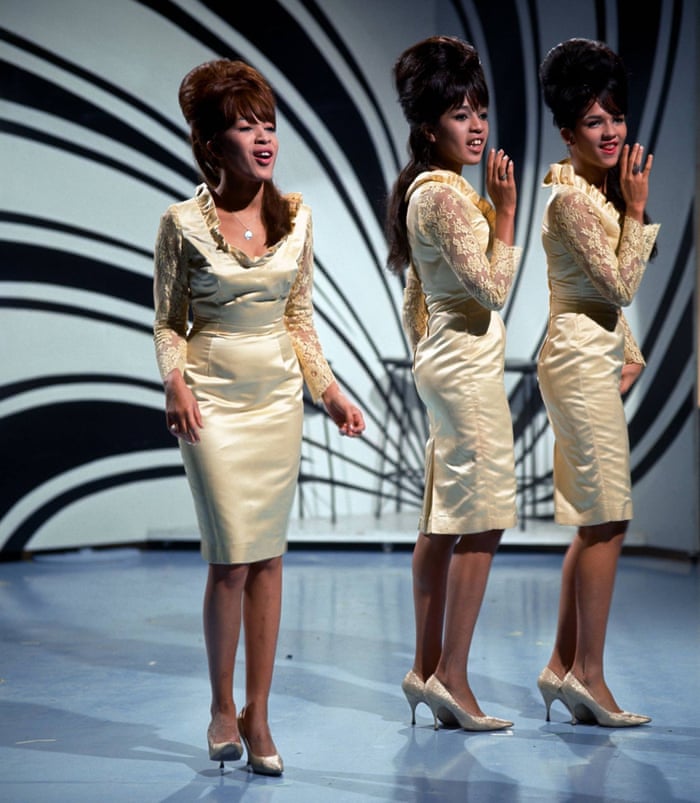
After parting ways with Phil Spector in 1972, Ronnie Spector reassembled the Ronettes, now billed as Ronnie Spector and the Ronettes, with two new members, Chip Fields Hurd (the mother of actress Kim Fields) and Diane Linton, in 1973. They released several singles on Buddah Records, but unfortunately, none of them managed to chart.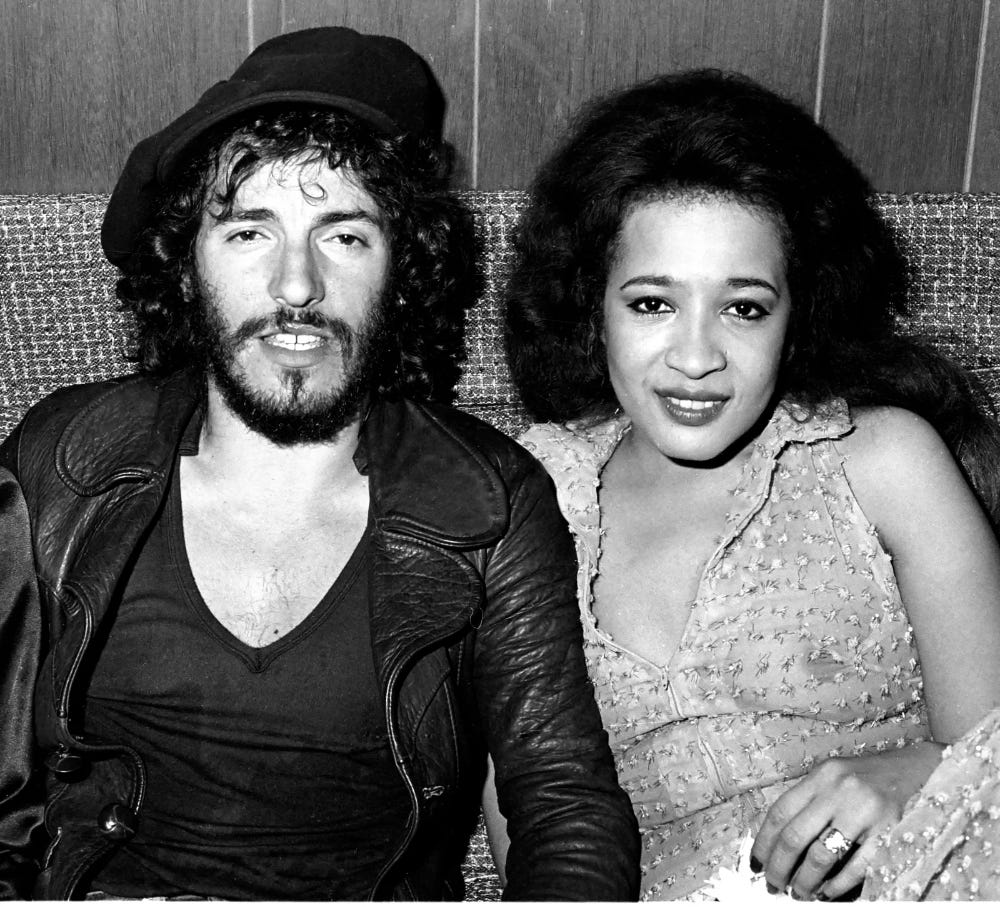
In 1973, Spector provided backing vocals, along with Liza Minnelli, for Alice Cooper's song "Teenage Lament '74" from the album Muscle of Love (1973). Transitioning to a solo career by 1975, Spector released the single "You'd Be Good For Me" on Tom Cat Records.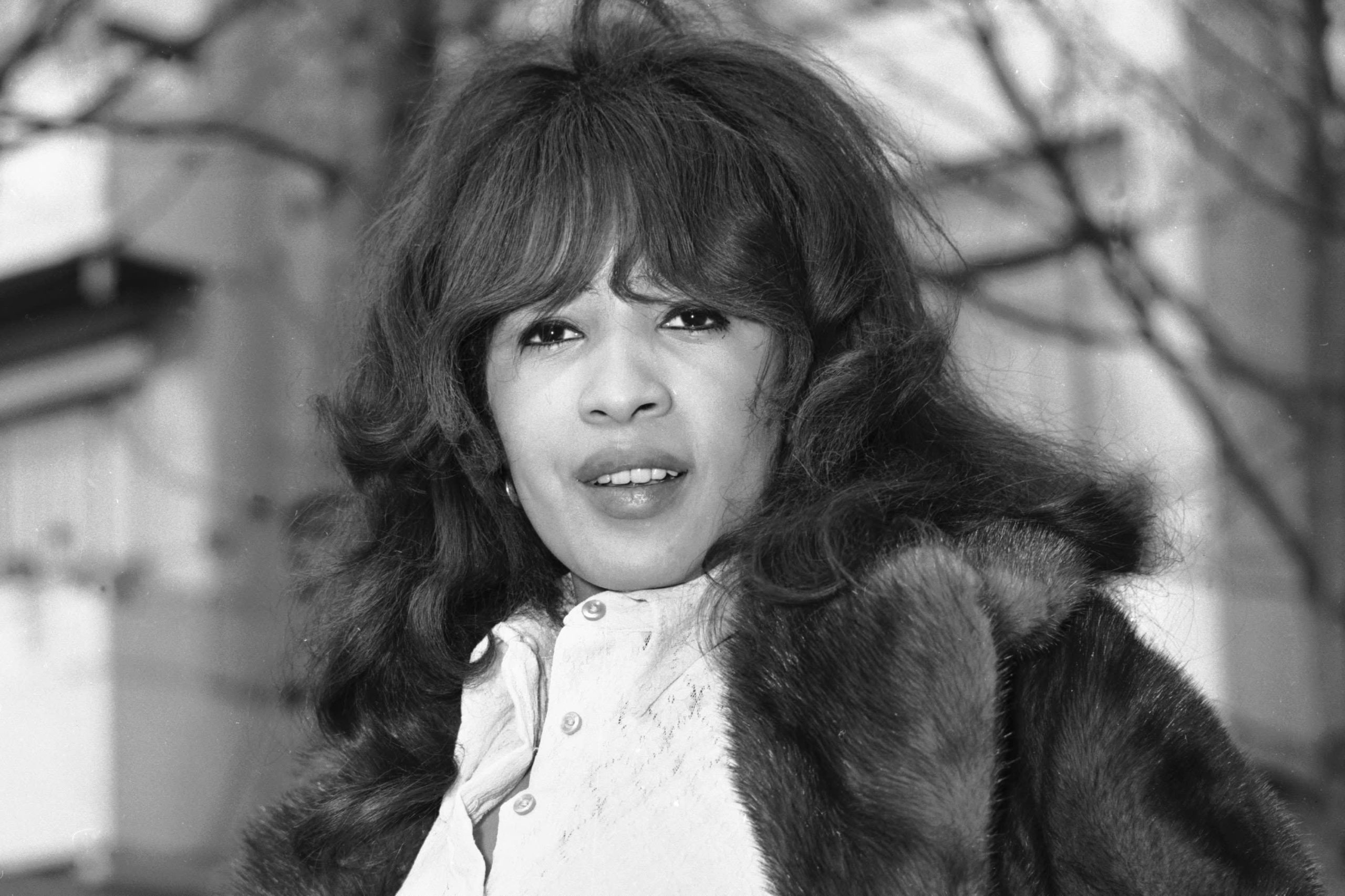
Her collaboration with Southside Johnny on the song "You Mean So Much To Me" in 1976 marked another milestone. The track, penned by Bruce Springsteen, appeared as the final track on Southside Johnny & the Asbury Jukes' debut album I Don't Want to Go Home. Additionally, she made guest appearances with the E Street Band, including a cover of Billy Joel's 1976 track "Say Goodbye to Hollywood."
Despite several attempts to reignite her mainstream success throughout the 1970s and early 1980s, Spector faced challenges and was often perceived as an oldies act. In 1980, she recorded her first solo album titled Siren, which was produced by Genya Ravan.
In 1986, Ronnie Spector experienced a resurgence in popular radio airplay with her featured vocals on Eddie Money's Top 5 hit, "Take Me Home Tonight." The song's memorable chorus included the line "just like Ronnie sang," to which she responded with "be my little baby," referencing the Ronettes' classic hit "Be My Baby." The music video for the song became one of the top videos of the year and received heavy rotation on MTV. Around the same time, she also recorded the song "Tonight You're Mine, Baby" for the film Just One of the Guys.
Starting in 1988, Ronnie Spector began performing at the Ronnie Spector's Christmas Party, a seasonal event held at B.B. King Blues Club & Grill in New York City. In 1999, she released the EP She Talks to Rainbows, featuring covers of older songs, with Joey Ramone acting as the producer.
In 1988, Ronnie Spector, along with the other members of the Ronettes, filed a lawsuit against Phil Spector for nonpayment of royalties and for unpaid income derived from the licensing of Ronettes' music. In 2001, a New York court ruled in favor of the Ronettes, ordering Phil Spector to pay $2.6 million in back royalties. However, the judgment was overturned by a Court of Appeals in 2002, which remanded the case back to the New York State Supreme Court. The judges determined that Phil Spector had unconditional rights to the recordings per their contract. While Ronnie was entitled to her share of royalties, which she had forfeited in her divorce settlement, the court reversed the ruling that the group was entitled to the industry's standard 50 percent royalty rate. Ultimately, Phil Spector paid in excess of $1 million to Ronnie Spector.
In December 1998, shortly after signing with Creation Records, Ronnie Spector appeared on the BBC's Later... with Jools Holland.
In 2003, Ronnie Spector contributed backing vocals to The Misfits' album Project 1950, specifically on the songs "This Magic Moment" and "You Belong to Me." In recognition of their significant contributions to music, the Ronettes were inducted into the Vocal Group Hall of Fame in 2004.
In November 2010, Ronnie Spector released a Christmas EP titled Ronnie Spector's Best Christmas Ever, featuring five new Christmas songs. Following Amy Winehouse's death in 2011, Spector released her version of Winehouse's single "Back to Black" as a tribute and for the benefit of the Daytop Village addiction treatment centers. She continued to perform the song as part of her live act, including during her 2015 UK tour.

Spector released her first album of new material in a decade, English Heart, through 429 Records in 2016. The album featured her versions of songs from the British Invasion era, produced by Scott Jacoby, and peaked at No. 6 on the Billboard Top Heatseekers chart. In August 2017, a new single titled "Love Power" by Ronnie Spector and The Ronettes was premiered by People, marking the first Ronettes single in decades.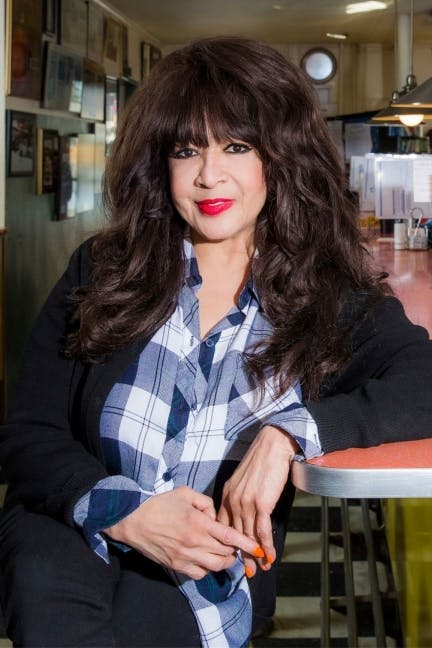
In 2018, Spector appeared in the music documentary Amy Winehouse: Back to Black (2018), based on Winehouse and her final studio album Back to Black. Spector's influence on Winehouse's style and music was highlighted in the documentary, and she covered Winehouse's signature song "Back to Black" as a tribute.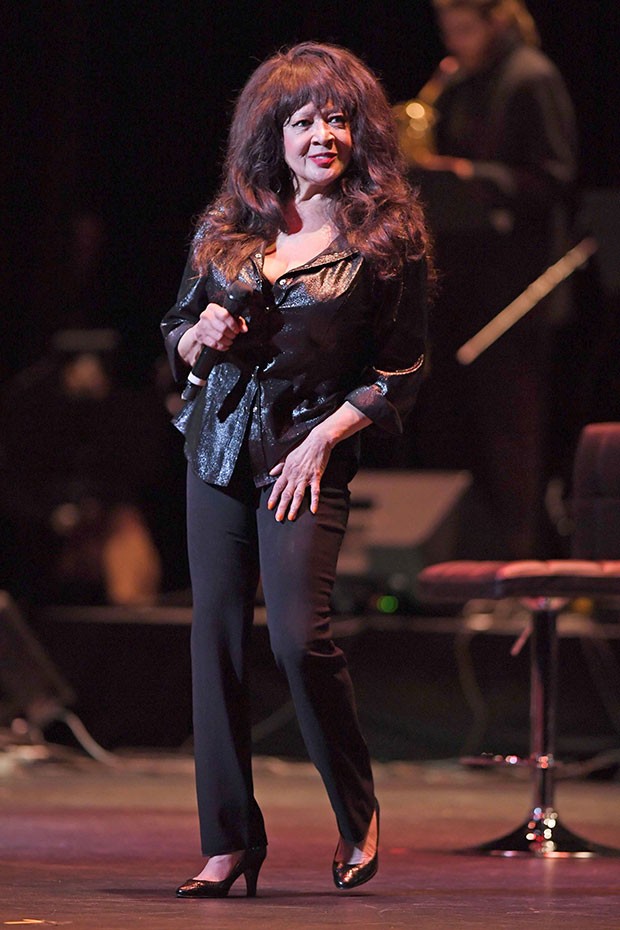
In September 2020, it was reported that actress Zendaya would portray Spector in a biopic adapted from her memoir Be My Baby. Additionally, in December 2021, the Ronettes returned to the Top 10 for the first time in 58 years with their 1963 recording of "Sleigh Ride". Following Ronnie Spector's death in January 2022, the BBC broadcast a compilation tribute titled Ronnie Spector at the BBC.
References
- "1 No. 114: Ronnie Greenfield, et al. V. Philles Records, Inc., et al". October 17, 2002.
- ^ Donovan, Patrick (April 12, 2006). "The Last of the Rock Stars". The Age. Australia.
- ^ "The Ronettes – Inductees". The Vocal Group Hall of Fame Foundation. 2004. Archived from the original on March 20, 2007.
- ^ Cateforis, Theo (2013). The Rock History Reader. Routledge. p. 43. ISBN 9780415892124. Retrieved July 28, 2017.
- ^ "The Ronettes". Rock & Roll Hall of Fame. Retrieved January 18, 2019.
- ^ "The 200 Greatest Singers of All Time". Rolling Stone. January 1, 2023. Retrieved July 12, 2023.
- ^ Mackin, Jim (November 24, 2020). Notable New Yorkers of Manhattan's Upper West Side: Bloomingdale–Morningside Heights. Fordham Univ Press. p. 88. ISBN 978-0-8232-8931-8.
- ^ Sisario, Ben; Coscarelli, Joe (January 12, 2022). "Ronnie Spector, Who Brought Edge to Girl-Group Sound, Dies at 78". The New York Times. ISSN 0362-4331. Retrieved January 13, 2022.
- a b "Ronnie Spector obituary". The Guardian. January 13, 2022. Retrieved January 13, 2022.
- ^ Jamieson, Teddy (January 20, 2019). "Ronnie Spector on John Lennon, Phil Spector and loving life at 75". The Herald. Glasgow. Retrieved January 14, 2022.
- ^ Sisario, Ben (February 16, 2009). "A Life of Troubles Followed a Singer's Burst of Fame". The New York Times. Retrieved April 11, 2013.

